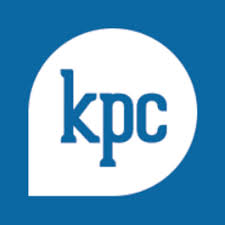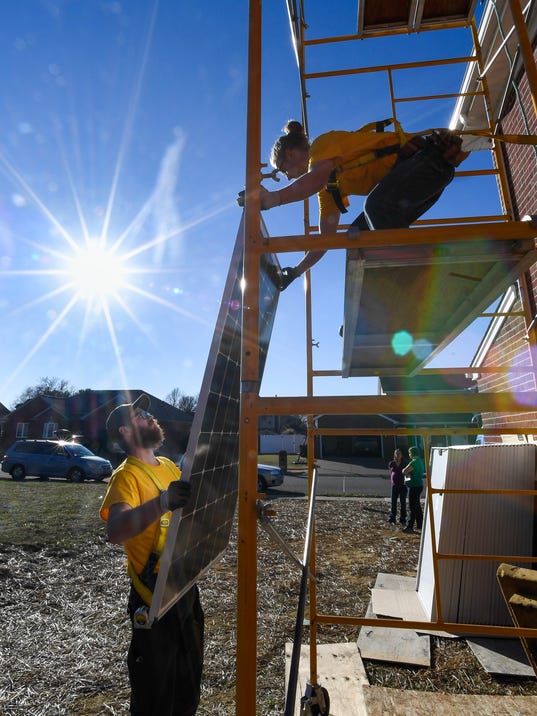Solar bill passes out of committee
Amendments relax restrictions on net metering, but solar advocates remain flustered
Devin Zimmerman, Feb 23, 2017
Despite changes to the regulations proposed to Senate Bill 309, solar advocates remain wary of State Sen. Brandt Hershman’s legislation.
Last week the Senate Utilities Committee convened to vote on SB 309, which includes sweeping reforms that solar advocates argued could have removed many of the benefits associated with homeowners adopting their own solar arrays. The day of the meeting, amendments were introduced to the bill that eased some of the restriction’s previously posed against the renewable energy industry, but opposition to the bill remained concerned.
Sen. Michael Delph introduced the amendments to SB 309, which relaxed some of the restrictions proposed in the first version of the legislation. Since the amendments were introduced, the proposal passed out of the Senate Utilities Committee after an 8-2 vote.
With the amendments, those who already have solar arrays in place will receive the present retail rate for their excess energy for another 30 years. Those who adopt renewable energy technology over the next five years also receive a higher retail rate for energy sold back to the utility companies until 2032. After 2022, should a consumer construct his or her own renewable energy infrastructure, the incentive shrinks even more.
But still, when these deadlines are reached, clean energy advocates worry that the industry still will suffer greatly.
“When I export energy if this bill is law, the exported energy won’t be reimbursed at a one-for-one rate (after the deadlines are reached),” said Chris Rohaly, the president of the solar panel construction company Green Alternatives. “It will be credited at what they call the avoided cost, which is, from a utility perspective, either I can buy from the coal plants or I can buy from a private solar array. That’s down to about three cents per kilowatt per hour, approximately.”
At three cents per kilowatt an hour, the rate after the deadlines is reached is much lower than the 10 or 11 cents, depending upon location in Indiana, that is the present market rate. So, when that rate takes place, a large savings incentive is lost to solar users.
Additionally, the amendment also altered the percentage of a grid’s total energy that could originate from renewable energy. Before, a cap was set at one percent. When one percent of a grid’s energy came from renewable energy, anyone above that limit would not be eligible for net metering. Under the amendment, the cap increased to 1.5 percent.
Again, solar advocates worried about the cutoff’s impact on clean energy industry growth.
“That extension only applies as long as we are under that 1.5 percent cap,” said Rohaly. “As distributed energy grows in popularity, it’s quite possible that cap will be met well before the extension order runs out. Right now that’s whatever comes first … I will say Indiana is really low there as well. For instance, I just found out that in West Virginia, they just reduced their cap to three percent. They’re still twice what we are. Our neighbors I believe, Illinois and Ohio, are five percent. We’ve got a very low cap.”
In last week’s meeting, Hershman defended his bill vehemently.
Primarily, he argued that the extensions the amendments provide are generous and that five years is time enough for those seeking to adopt the technology.
He also claimed that if net metering persisted, it could have a negative impact on the prices for utility users.
“Yes, there is a reason not to do this forever and at this rate because, as it grows, the subsidy that was demonstrated by these independent authorities grows to a point where it will have a negative impact on rates for all consumers,” said Hershman during the hearing. “Not only residential but industrial as well.”
The Hoosier Environmental Council, which already expressed displeasure with Hershman’s proposal, also issued the following statement after the proposal passed out of committee.
“Governor Eric Holcomb made innovation one of the central themes of his State of State Address. Gov. Holcomb has made fostering entrepreneurship a central priority of his new Administration. Those priorities — innovation and entrepreneurship — are presumably ones embraced by his Indiana State Senate counterparts. But those priorities are not reflected in the amended version of SB 309.
“This bill, without any disclosed, objective, Indiana-specific study to justify this enormous change in policy, worsens the investment landscape for rooftop solar by forcing an arbitrary reduction in the value that our electricity grid assigns to solar energy and enabling the possibility of utilities imposing a new fixed fee on customer-owned solar generation; these concerns remain even with the amendment in Committee today.
“SB 309, if adopted into law, may well have long-term impacts in terms of deterring investment in solar energy by both homegrown entrepreneurs and those who may otherwise see Indiana as a promising investment destination for solar. The most constructive way forward is for the Indiana State Senate to call on the Indiana Utility Regulatory Commission to do a study that transparently assesses the benefits and costs of solar and offers recommendations on changes needed to Indiana’s solar energy-related policies in order to ensure that our state is at the forefront of welcoming solar entrepreneurs and advancing solar innovation.”





